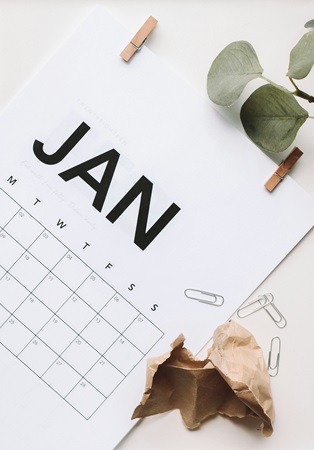Persistent vs. Impulsive Self-Improvement
By Tom Horvath, PhD

Even if you did not make any New Year’s resolutions, you may have thought about self-improvement changes you want to make. The beginning of the year is an obvious time to do so. To the extent you did such thinking (or do it now!), you have acted on step one: identifying a desired change.
What actions now make sense? This part is often complicated, but the principle of “small steps” can be very helpful. This may be a time to investigate, experiment, inquire, consult, and otherwise gather information. Keeping mental notes of what you are learning is almost inevitable, and written records may also be helpful. You could designate a paper journal, or a computer file, or a set of audio recordings, to record what you are learning (and devote time to reviewing it).
At some point it makes sense to begin regular actions in support of your change toward self-improvement, even if you are uncertain what the final set of actions will be. You could be doing exercises, cooking more nutritious meals, attending social events, striking up conversations, and making other changes, even though your immediate activities may be only a rough draft of your final activities. Also, in any area important to us, there probably is no “final” anyway. How we operate keeps evolving, but typically more slowly after the initial burst of change.
You might get an “accountability partner” (they can be helpful) but a simpler approach is to talk with one or more trusted individuals on some regular basis about what you are doing. Describing your journey is an important part of solidifying it. Your listener does not need to provide any feedback or coaching, just listening. With luck there is also the recognition that you are talking about changes that are important to you but may be struggling with.
So, if the perhaps impulsive resolution you started the year with is faltering, give yourself credit for having the idea at all, and move into a slower but persistent effort to make progress toward whatever ideals you have in mind. Even if there are long gaps in your efforts, most projects can be resumed, and further progress can be made.
Liked this article on persistent versus self-improvement? You might also be interested in: New Year’s Resolutions and the Abstinence Violation Effect.
